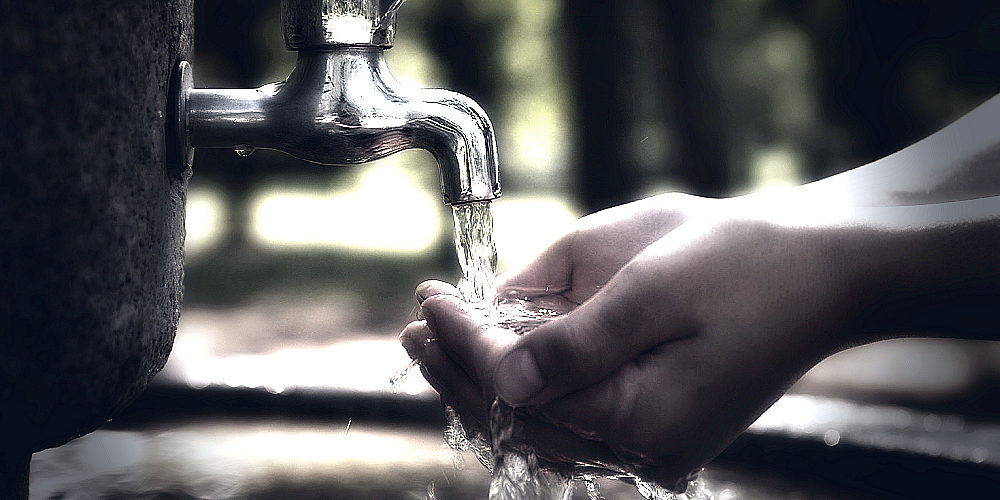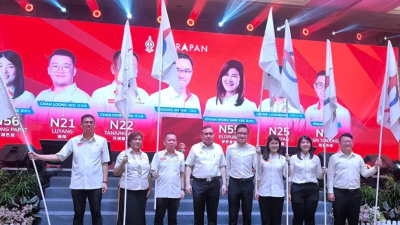
The National Water Services Commission (SPAN) announced that beginning February 1, domestic households in Peninsular Malaysia and the Federal Territory of Labuan using more than 20 cubic meters every month will have to pay additional RM1.60 to RM8 a month, or an average of 5 to 27 sen more a day.
Meanwhile, non-domestic users using more than 20 cubic meters of water each month will have to pay additional 40 sen to RM2 a month, or 1 to 7 sen a day.
According to SPAN statistics, the cost of providing water was RM1.75 per cubic meter based on 2022 records, and as such, the increase in water tariff is still lower than the cost.
Moreover, the increase in water tariff will enable water supply operators to more effectively invest in water supply infrastructure development, including the construction and upgrading of water treatment plants, replacing old pipes, conduct regular maintenance, and more efficiently manage customer complaints. This is to ensure sustained provision of water supply services to meet the consumers’ needs and expectations.
Whenever the government raises the utility tariff, many will tend to ask: will this affect the B40 community?
While talking about the higher water or electricity tariffs, perhaps we should first look at the way Malaysians consume water and electricity, how we rank in the world in terms of utility tariff, and whether we customarily waste our precious water and electricity resources.
Hopefully, with the higher water tariff that will go into effect next month, we will learn to control our usage.
Global water scarcity has been a consequence of climate change that causes some areas to experience unusual droughts or floods. Such a scenario has a reached a stage that it has now become almost irreversible.
Excessive electricity consumption has sent global carbon dioxide emission to spike to 36.7 billion tons. The issue continued to be highlighted in last year’s COP28 in the UAE, and 2050 net zero goal remained a tall order for nations.
Climate change resulting from increased carbon emission has given rise to unpredictable weather patterns and drastically reduced rainfall. As such, it is a good thing if the raised water tariff this time can prompt Malaysian consumers to conserve water and electricity.
We are always concerned about when the next water rationing will happen and when the water tariff will rise again. But who will care how times we shower each day and how many litres of water a full bath tub can hold?
Can we just change the bad habit of allowing the tap water to keep running while we do the dish-washing or brush our teeth?
Who will bother how many litres of tap water are wasted each minute because of this bad habit?
Saving water is the responsibility of not only the government but every one of us, whether we are T20 or B40!
The WHO has recommended daily water consumption of 165 litres, but SPAN statistics show that we are using more than 210 litres of water a day, or 27% above global average!
WWF once said Malaysians are among the top water users in Asia, as we take two to three showers a day.
By comparison, the average household water consumption in neighbouring Singapore fell from 148 litres in 2016 to only 141 litres per person a day in 2019.
The city-state’s Public Utilities Board is targeting 130 litres per person a day by 2030. The country has even enacted a law to mandate household Water Efficient Flow Rate at four to six litres per minute.
As for Malaysia, the higher the water pressure, the better it is. Use water liberally, as it is dirt cheap!
The SPAN website reveals that Malaysia had the fourth lowest water tariff in ASEAN in 2022, at RM1.22 per cubic meter, lower than Vietnam (RM1.37), Thailand (RM1.68), the Philippines (RM2.92) and Singapore (RM5.88).
According to International Water Association’s (IWA) report in 2022, our water was also cheaper than Taiwan (RM1.36 per cubic meter), Malta (RM16.50), Japan (RM4.50), Finland (RM7.30), and the United States (RM8.30).
According to FAO’s State of Food and Agriculture 2020 report, 3.2 billion people, or about 40% of the world’s population, are facing water resource shortage problems, while 1.2 billion live in severely water-constrained agricultural areas, with daily water consumption less than 20% of Malaysia’s.
It is time for us to appreciate and value our precious water resources against the backdrop of breakneck technological advancement, increasingly stressed water availability, impact from climate change, water pollution as a result of over-development, and water scarcity becoming an urgent global issue.
This is the responsibility of not only the government but every one of us, whether we are T20 or B40!
ADVERTISEMENT
ADVERTISEMENT


































